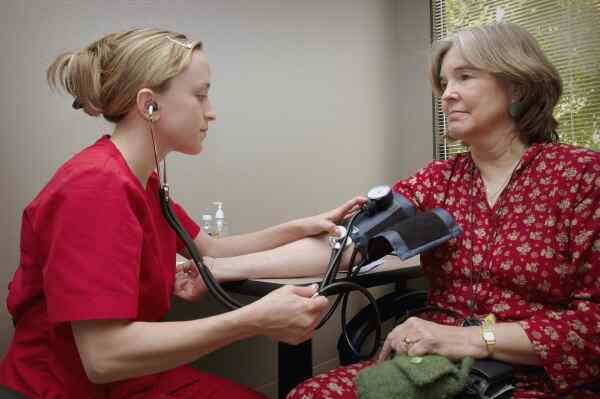Osteoporosis is a common medical condition that affects millions of people throughout the world. It is characterized by fragile bones which are susceptible to fractures, which can cause a lot of pain and disability.
But the good news is that there are many natural ways to improve osteoporosis and prevent it from other complications.
In this article, we will take a look at 10 of the best natural ways to improve osteoporosis and what you can do to improve your bone health and preventive tips for osteoporosis.

Natural Ways to Improve Osteoporosis
The following are the 10 effective natural ways to improve osteoporosis.
Eat a Nutrient-Dense food
One of the most important natural ways to improve osteoporosis is to eat a diet that is rich in calcium, vitamin D, and other essential nutrients that are important for bone health.
To consume a nutrient-dense diet focus more on dairy products, leafy green vegetables, nuts, and seeds, as well as consume adequate amounts of protein.
Use enough Supplements
Along with eating a nutritious diet and exercising regularly, taking supplements can improve osteoporosis.
Calcium and vitamin D supplements are the most commonly recommended supplements for osteoporosis, but there are also other bone-building micronutrients, such as magnesium and vitamin K, that are as important as calcium and vitamin D.
Manage your Stress
Stress can harm your bones, during stress the secretion of cortisol increases and it interferes with the body’s ability to absorb calcium, so as a result of this bones do not absorb an adequate amount of minerals.
There are a lot of relaxation techniques available through which you can calm your stress, such as meditation, deep breathing, and yoga can help to improve osteoporosis and protect your bones from further damage and demineralization.
Regular exercise
Physical activity is a very important factor in improving osteoporosis. Weight-bearing exercises, such as walking, running, and jumping, are particularly beneficial, as they put pressure on your bones and help to build strength and density.
Regular exercise not only improves balance and coordination, reducing your risk of falling and breaking bones but also your overall health.
Try Acupuncture technique
People from ancient times used acupuncture technique in china for various diseases but it is good practice for osteoporosis because it increases blood flow to the bones and reduces inflammation.
It is a gentle and non-invasive way to improve bone health.
Quit smoking
Smoking is one of the most dangerous damaging factors for your bones, because it reduces blood flow to the bones, causing demineralization and weakening their structure.
Quitting smoking is one of the most effective natural ways to improve osteoporosis, as it can help to restore blood flow and increase bone density.
Quit or reduce alcohol intake
Alcohol consumption can also have a bad impact on your bones because it interferes with the absorption of calcium and other essential micronutrients.
Reducing your alcohol intake or cutting it out altogether can help to improve osteoporosis and protect your bones from further damage and rebuild bone density.
Reduce Caffeine Intake
Like alcohol, caffeine reduces the absorption of calcium, so it’s important to lower your caffeine intake if you have osteoporosis.
Try drinking decaf coffee and tea, or switching to herbal teas, to reduce your caffeine intake and improve your bone health.
Adequate sleep
Getting enough sleep is also an important factor for improving osteoporosis, during sleeping your bone start to repair and the absorption of minerals enhance.
Always try to achieve 7-9 hours of sleep per night and try to establish a regular sleep schedule to improve the quality of your sleep and the health of your bone.
Know your osteoporosis risk factors
Along with natural ways to improve osteoporosis, it’s also important to know your risk factors for developing osteoporosis. Some of the most common risk factors include:
- Advanced or old age
- Women
- Family history of osteoporosis
- Low body weight
- Menopause
- Heavy alcohol consumption
- Lack of physical activity
- Long-term use of corticosteroid medications
- Smoking
- Low calcium and vitamin D intake
- Low absorption of minerals that useful for bone density
Knowing your risk factors can help you to take preventive measures to prevent osteoporosis and maintain good bone health.
Prevention of osteoporosis
The following are the preventive measure to prevent the development of osteoporosis.
Eat a nutrient-dense diet
- Focus on calcium-rich foods
- Eat foods high in vitamin D
Exercise regularly
- Weight-bearing exercises
- Resistance training
- Limit alcohol consumption
- Stop smoking
- Get adequate vitamin D from sunlight or supplements
- Take hormone replacement therapy (for postmenopausal women)
- Speak to your healthcare provider about taking calcium and vitamin D supplements.
Summary
Osteoporosis is a serious chronic medical condition that can cause a lot of pain and disability, but there are many natural ways to improve it.
Whether you’re looking to boost your bone health through diet and exercise, supplements, or lifestyle changes, there are plenty of effective strategies to choose from.
With the right approach, you can improve your osteoporosis and protect your bones from further damage.
FAQs
Q: Can I improve osteoporosis without medication?
Ans: Yes, you can improve it without medications. There are several natural ways to improve osteoporosis.
This includes eating a nutrient-dense diet, exercising regularly, taking supplements, and making lifestyle changes, such as stopping smoking and reducing alcohol intake.
Q: Can postmenopausal women prevent osteoporosis with hormone replacement therapy?
Ans: Yes, Hormone replacement therapy (HRT) can prevent osteoporosis in postmenopausal females. HRT replaces the hormones that the body stops producing after menopause, which can help to maintain strong bones.
Q: How much calcium do I need to improve osteoporosis?
Ans: The recommended daily intake of calcium for adults is 1,000-1,200 mg per day, and it is depending on your age and gender.
However, if you have osteoporosis, then you will need a higher dose of calcium, so it’s important to speak to your health professional to determine your specific needs.
Q: How does weight-bearing exercise to prevent osteoporosis?
Ans: Weight-bearing exercises, such as walking, running, weight lifting, and resistance training, can help to build and maintain strong bones. This is because exercise put stress on the bones, which triggers the body to lay down new bone tissue.
Q: Is osteoporosis reversible?
Ans: osteoporosis is not completely reversible, but through natural remedies and lifestyle changes it is possible to improve the condition and prevent it from getting worse.
With the right strategy, you can maintain good bone health and reduce your risk factor of fractures.
Q: Are calcium supplements enough to prevent osteoporosis?
Ans: Calcium supplements are an important nutrient for preventing osteoporosis, but they’re not only enough for the treatment of osteoporosis.
Together with calcium, it is important to get adequate vitamin D, exercise regularly, limit alcohol consumption, and quit smoking.
Q: Can I prevent osteoporosis with lifestyle changes alone?
A: Yes, you can prevent osteoporosis with lifestyle changes. Making lifestyle changes such as eating a healthy diet, exercising regularly, limiting alcohol intake, and stopping smoking can prevent osteoporosis
Q: How much vitamin D do I need to prevent osteoporosis?
Ans: The recommended daily dose of vitamin D for adults is 600-800 IU per day. But some people may need a higher dose than the recommended one, so it’s important to speak to your healthcare provider to determine your specific needs.
.


